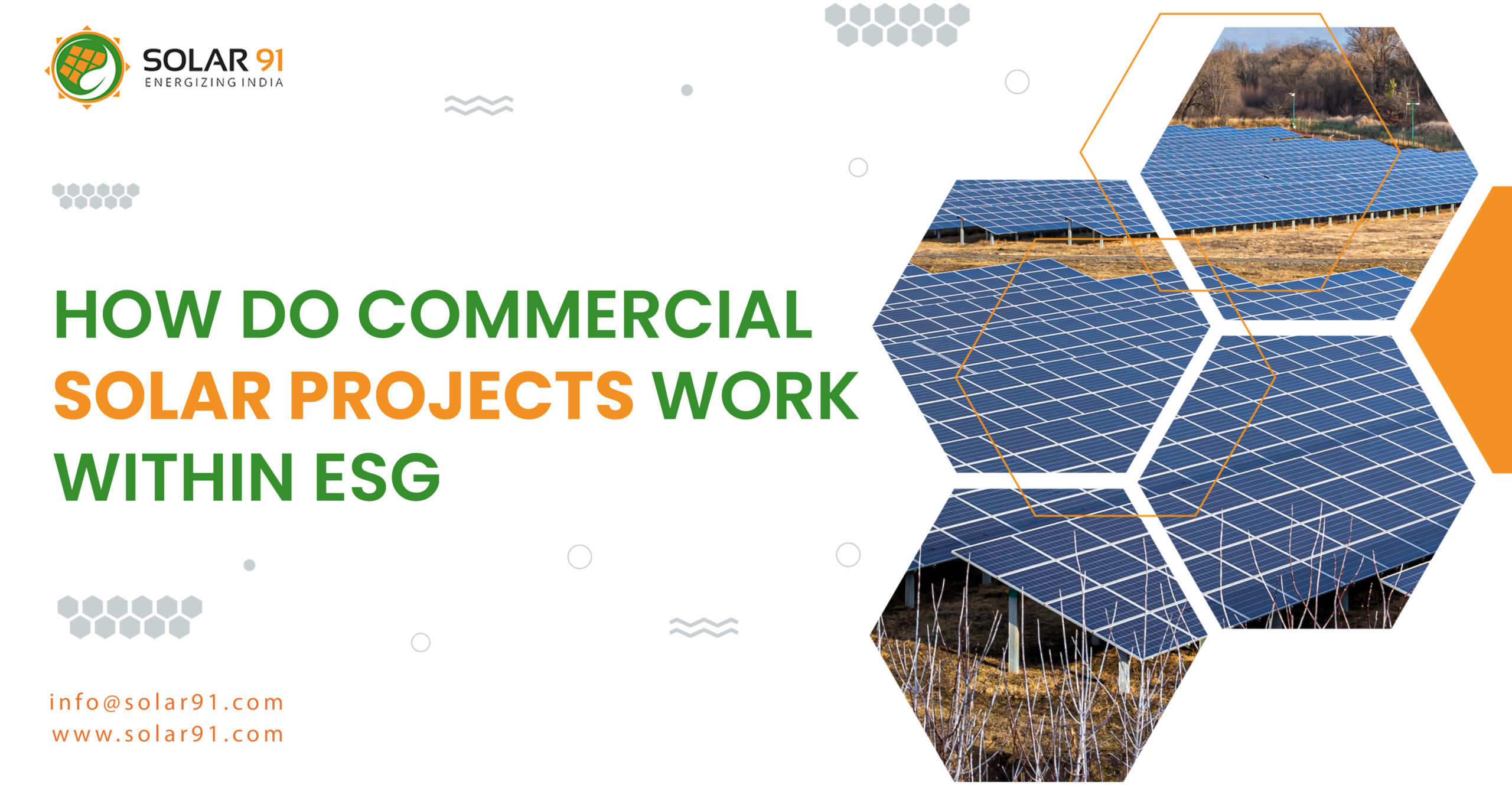How do Commercial Solar Projects Work Within ESG
ESG is an acronym that stands for Environmental, Social, and Governance. These are the three essential indicators of an investment’s long-term viability and ethical influence. ESG has become a key indicator of corporate responsibility and a determinant of customer and shareholder faith. Investors are taking notice of an increasing number of Fortune 500 businesses issuing ESG reports that assess their excellent performance in this area. ESG is a 3-part strategy, and for a global economy, certain geographic areas of the world focus particularly on the components of ESG and sometimes favor one over the others.
Most businesses are familiar with the concept of sustainability and understand the importance of renewable energy in long-term planning. At this stage, every organization has realized that renewable energy is an important part of a company’s overall environmental, social, and governance (ESG) practices. Climate change is having a significant impact on how organizations plan, assess risk, and allocate resources, and ESG has a big role to play in it, and let us see how.
Environmental
The movement to reduce the burden on fossil fuels to generate electricity is as strong as it’s ever been, and it’s just going to become stronger. Many Fortune 500 companies, tax-exempt organizations, and municipalities have set goals to achieve carbon neutrality in the next 10-15 years by switching to green energy. This creates a big opportunity for developers and investors in the commercial solar industry who want to take advantage of the tax benefits, bonus depreciation, and cash flows that these projects can generate for 20-25 years or longer. The financial services industry is also driving the ESG agenda by pushing firms to assess or develop ESG practices.
Social
A company’s strengths and limitations in dealing with social trends, labour, and politics are among the social elements to evaluate sustainable development. Focusing on these issues can boost revenues while also promoting the consumption of renewable sources of energy like solar. Companies must adapt their thinking as millennials continue to represent the fastest-growing segment of consumers. We’ve understood that millennials care about the environment and are environmentally conscious investors who rely their investing decisions on a company’s ESG standards. This fits nicely into the commercial solar sector, as these initiatives tend to touch many important areas, such as greenhouse gas reduction and living off the grid.
Governance
Governance is the third component of the ESG. Investors can check for governance practices the same way they screen for environmental and social variables. Governance aspects highlight the laws and procedures for governments and organizations. There are differing views on how governance interests should be prioritized in business decision-making. More than 20% of S&P 500 businesses have linked some portion of their CEO income to ESG, especially in the governance area.
Employees, investors, and governments all want these companies to put corporate responsibility ahead of profits; this appeals to millennials and Gen Zs in particular. Commercial solar projects fall under the governance mandate since they allow a city or township to cut its power usage while not emitting any greenhouse gases.
How Solar Can be an Effective ESG Solution?
Businesses are increasingly feeling pressure to become more sustainable. And even to reduce the impact of the supply chain on the environment regulators, customers, investors, and other stakeholders, they’re all increasingly looking at ESG goals – Environmental, Social, and Governance goals, to measure a company’s performance. So here are the three ways in which solar power can be an effective and terrific solution to improve your business ESG performance:
- Solar’s a turn-key product, this means that there’s more straightforward and uncomplicated than other ESG projects that might require behaviour change, industry cooperation, adaptability, and the like.
- Solar has a tangible immediate impact, the minute you turn the system on, you’re offsetting the electricity consumption on-site which reduces or completely eliminates the carbon footprint or emissions caused by the consumption of conventional energy.
- Solar can be your great ESG solution because it can lower your electricity bills, and lead to increased savings. It can also be used for a substantial tax benefit for your business, depending on where you base your energy consumption and other variety of factors that benefit the environment.
- Solar is a substantive decarbonization solution with real, measurable results, has immediate impact, and clearly delivers more output and positive results than other ESG projects.
- Solar projects are generally easy to implement and do not require any kind of organizational changes, as the installation typically does not affect the operations.
Conclusion
Solar as an ESG solution provides a simple, proven, and impactful solution that helps companies satisfy their ESG goals and stakeholder demands. The solar solution is a great step towards sustainability and many companies have realized its potential in development along with its advantages in ESG. ESG will also open up new market areas and opportunities in which commercial solar projects will be a major participant and a multibillion-worth industry.

